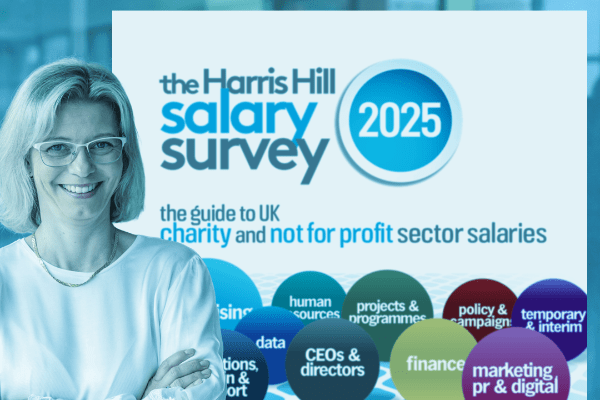For many people, flexible working is here to stay (except Fridays when it dials in via Zoom), but are charity staff among them, and are salaries affected? Here's what we're seeing, adapted from our 2022 Salary Survey.

Back in 2019, we reported that flexibility had overtaken salary as the number one expectation (not request) from candidates, and while many employers were tentatively flirting with the idea, few had dared to embrace it wholeheartedly.
It’s safe to say none of us expected working from home to become mandatory for stretches of the following year, but having tried it, many charity employers were firmly in favour, finding fears of lost productivity unfounded, and benefiting from considerable savings on costly premises.
This is all to the good for candidates, who are now far better able to find the flexibility they need.
And as many predicted when first introduced, some of the changes look set to be irreversible: even among employers (with a few exceptions), we’re seeing limited appetite to resurrect the five-days-a-week office model in its entirety.

How is flexible working affecting salaries?
Things were expected to go one of two ways at the start of the pandemic, largely depending where you stood on the glass half-full/empty debate.
Either:
a) reduced overheads would give employers scope for higher salaries, or...
b) employers would seek to offer lower rates for remote workers, citing their lack of commuting costs. (Alternatively, staff required to be in the office may at some point demand higher rates to cover these costs, delivering a similar two-tier result).
While it’s early days and these scenarios could still happen, we’ve seen no sign as yet in the charity sector: salaries are being driven by the usual factors of supply and demand, with the impact of flexibility so far appearing to be neutral.

Why flexibility matters
Flexibility might not (yet) influence salary, but we can’t stress enough that it’s an even more vital component of your offer if you’re hoping to hire.
By next year, we might even find ourselves publishing a flexibility survey, rather than focusing on salaries, such is its influence on candidate decisions.
And like salary, the more you can offer, the greater the appeal.
Stipulating five days a week at the office will severely limit your options, so avoid unless it’s genuinely essential. Hybrids of home/office work are popular though, and charities increasingly happy to offer them, with extra appeal if people have a say in their schedule rather than having it specified for them.

The flexible future?
Of course, now it’s no longer a rarity, flexibility isn’t quite the candidate-magnet it once was for those who were first off the mark.
To regain that advantage now, think next-level flexibility - not just where people work, but when: maybe early or late shifts for the larks and night owls, or swapping eight consecutive hours for four-hour blocks, to manage childcare or other responsibilities? What other obstacles might prevent people who’d love to work for you from doing so, and can you find flexible ways around them?
Clearly any new arrangements also need to be operationally viable and fair to all, so the possibilities are unlikely to be endless, but in the campaign to attract new talent, greater flexibility continues to be a vote-winner.
For more on current market trends, together with the latest rates for more than 200 charity roles, check out the full Harris Hill 2022 Salary Survey, give us a call, or get in touch with one of our specialist consultants.

-

Opportunity for all
Find out how we’re working to deliver more diverse, equitable and inclusive recruitment…
-

Recruiting a charity CEO?
Our executive recruitment specialists have an exceptional record of successful CEO, chair, trustee and…
-

Charity sector salaries
Our 2025 Salary Survey has the latest rates and expert insight for roles throughout the sector.













